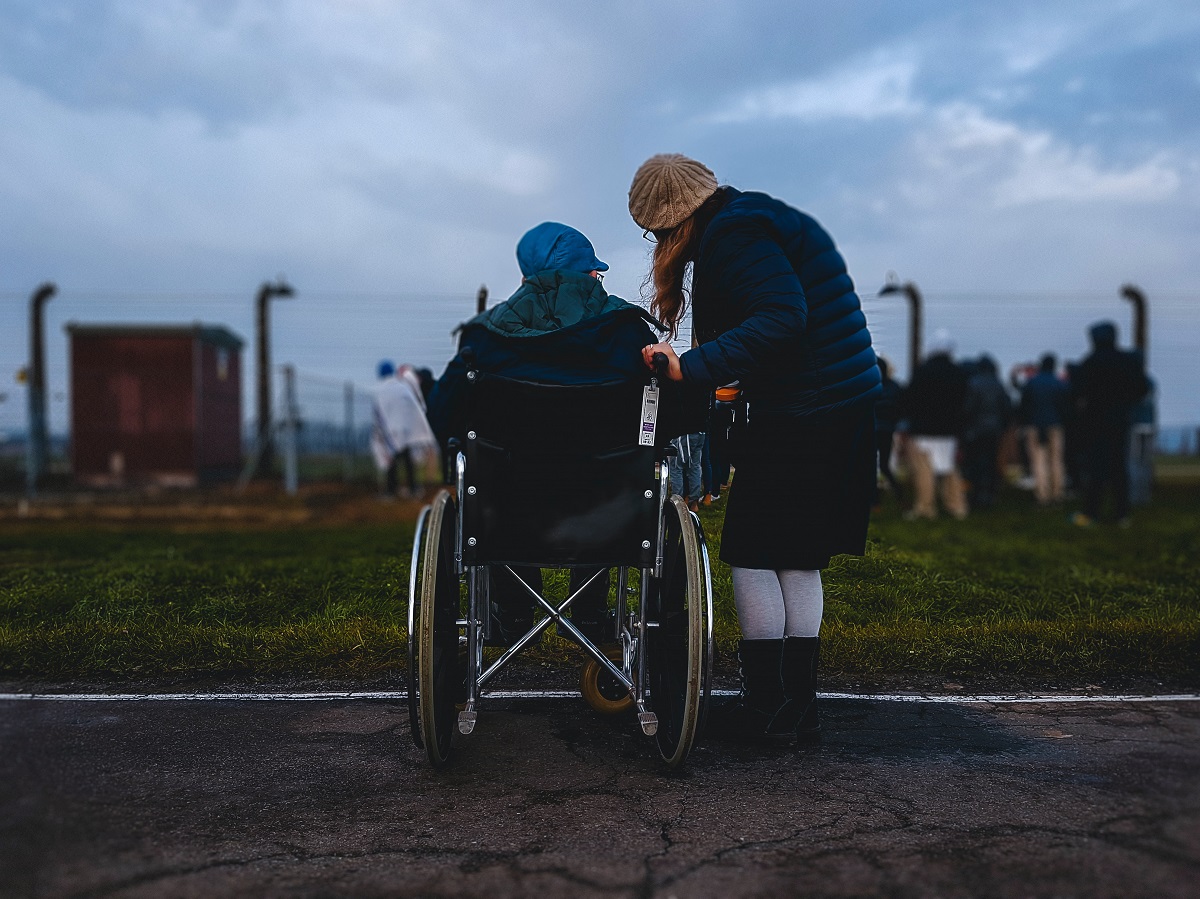By Andrew Humphries
When Uniting Church volunteers at Hamilton’s Argyle Shop in western Victoria recently received a complaint about access issues for a person using a wheelchair, it shone a light on the wider issue of disability inclusion.
And, in that sense, it became a learning tool for everyone involved.
Ironically, Presbytery of Western Victoria minister Rev Angie Griffin says the op shop’s success was, in a way, part of the problem.
Beginning life as a stall at the annual church fete, wonderful community support meant Argyle had grown into a successful and large enterprise fulfilling a valuable community need. That growth meant more volunteers, a huge increase in the amount of goods being donated and a need for the shop’s management to handle the many legal and administrative requirements involved while, at the same time, respecting the Church’s values, ethos and practice.
“The community responded generously, particularly during the difficult months of COVID-19, and that led to a massive quantity of goods being delivered to us,” Angie says.
“The need to display those goods for purchase led to the challenges of managing available space and this led to an issue which was highlighted by a letter of concern around access for people with disabilities.”
The shop exists on the site that once housed the Argyle Arms Hotel, hence why it is called the Argyle Shop. Angie says staff took the issue of disability access and inclusion seriously and immediately took steps to rectify the situation.
Managers and volunteers worked quickly to ensure guidelines were put in place to ensure ongoing use for people with a disability, and compliance with regulations.
Floor markings allow volunteers to know aisle boundaries and ensure walkways are maintained, while measures have been introduced to ensure adequate turning room for customers using wheelchairs and walking frames.
“Volunteers will also be encouraged to be more proactive in offering assistance to those who may need it,” Angie says.
“The shop has grown so much because of wonderful generosity from the community and we must ensure it is appropriate for everyone to access because people from all walks of life come in.”
Synod of Victoria and Tasmania disability inclusion advocate Rev (Deacon) Dr Andy Calder was pleased with the way Argyle staff addressed a difficult situation, showing how the issue of disability inclusion was an ongoing learning process for everyone involved in the UCA.
He says the Church has strong policies around disability inclusion and a long history of being committed to equal opportunity and equal access for all members.
“We have a disability action plan for the 2019-22 period and that gives us a strong foundation for action,” Andy says.
“We are the only church I know of that has a disability action plan in place and, because religious organisations aren’t exempt from complying with the Disability Discrimination Act, we have developed these plans over a period of time.
“This is our third plan and we lodge each one with the Human Rights Commission. They are a tangible expression of our commitment.”

People with a disability need to feel that they are welcome within the church.
While great progress has been made, Andy suggests there is still much work to be done around disability inclusion.
“There is no doubt we have made progress in the last generation or so, but we still have a long way to go,” he says.
“We hang in there and keep reminding ourselves how important it is and that we respond positively when and where we can and bring people together to try to find solutions.”
Andy says the way Argyle management and volunteers responded to the letter of complaint was a perfect example of how an issue concerning disability inclusion should be addressed.
“This example highlights that where there is collaborative goodwill, change for the good can occur,” he says.
Like Andy, senior social justice advocate Mark Zirnsak is proud of the UC’s commitment towards disability inclusion, but says there is still work to do around it, both at a Church and societal level.
Having a daughter with autism means Mark has direct experience of the issues and complexities around disability inclusion.
“I have had experience of what it’s like to try and find a congregation that will be able to include my daughter Chloe, and that is challenging,” he says.
“Chloe won’t sit still during an hour-long church service. She is going to get up, talk, wander around and explore things and, for some people in the church, that might be very challenging to what they want to experience out of worship.
“So to include Chloe, do we force other people to accept that or should she be integrated into a service where what she does is considered acceptable, and often we do have services where the kids can get up and wander around and be more active.
“It’s a valuable conversation to have — is that the right structure or should we try and integrate it all? In other words, how do we get it right?”
Above all, Mark’s message on disability inclusion is that it isn’t a one-size-fits-all issue, even for an organisation such as the UCA.
“I keep stressing there are not simple solutions and there has to be flexibility,” he says.
“It’s clearly not going to work for people with disabilities if we say you can be part of our church as long as you fit in with how we do everything and we are not willing to make any adjustments to include you.
“That is not inclusive and inclusion does mean that we have to think of ways to adjust the way we have always done things if we really want to be inclusive.
“My own view is that we have seen progress in the disability inclusion space and I think that flows through in my experience of working on legislation that we have seen continually adjusted to be more responsive and give more empowerment to people in these situations.
“So I think that is very much a positive, but we still have quite a way to go.
“The fact that there are so many different personal circumstances makes it quite challenging and I think the biggest lesson to take out of that is the ability to be able to actually listen and be willing to work with the individual to make them part of the community.”


